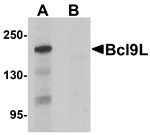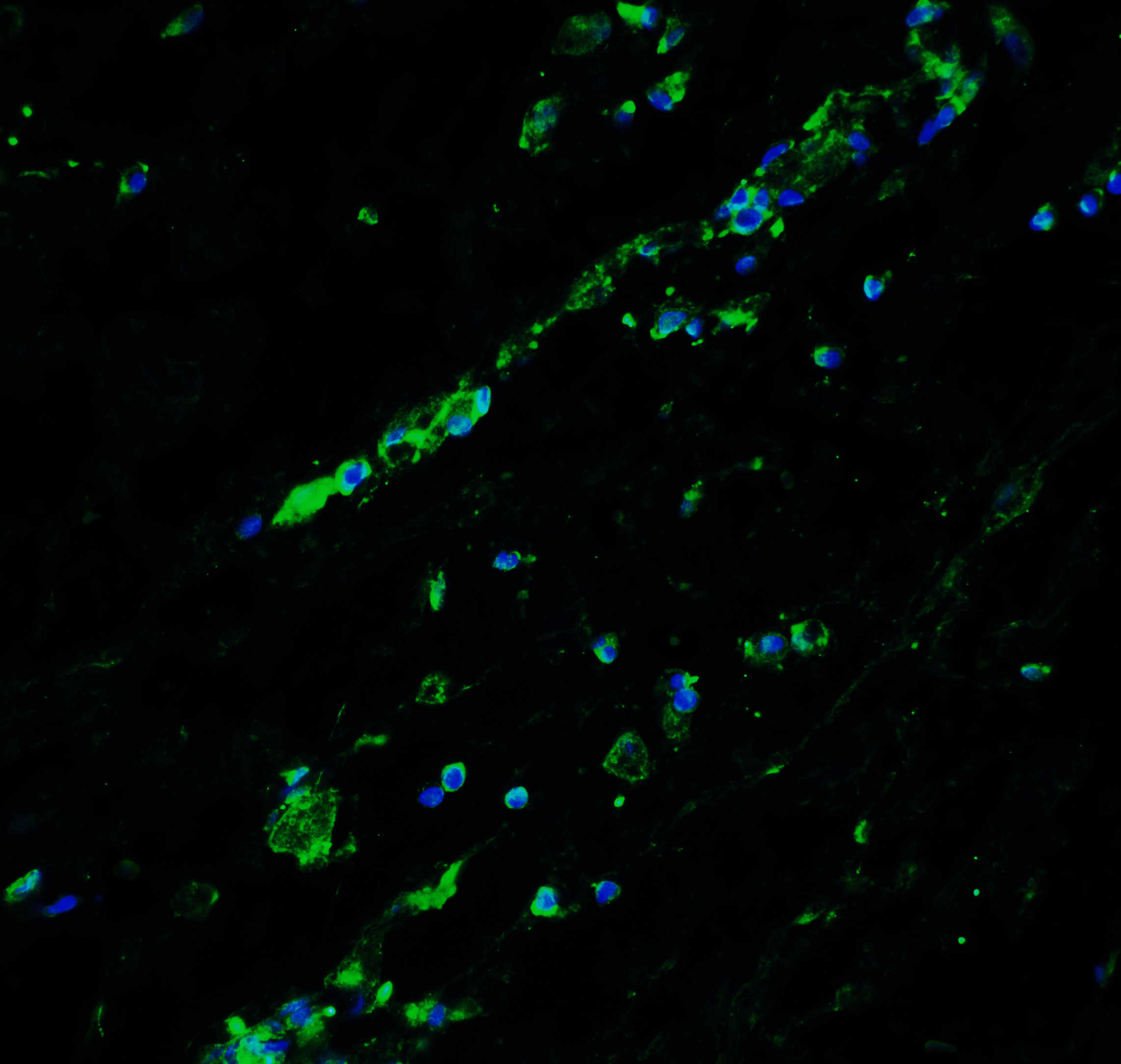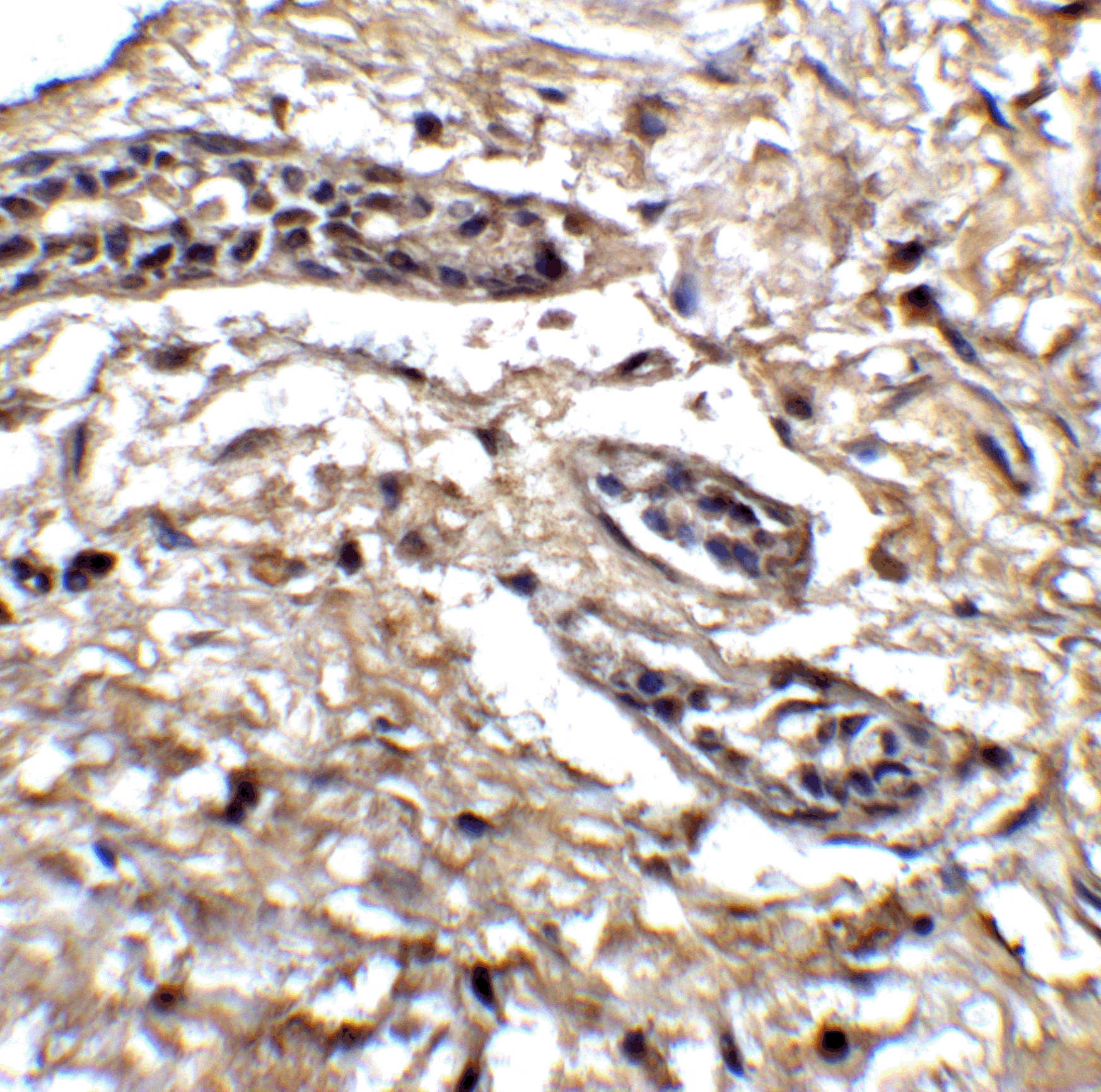Bcl9L, a homolog of Bcl9, was initially identified through a bioinformatics screening. It is expressed in fetal brain, adult lung, eye and prostate, in addition to several types of tumors including pancreatic and prostate cancers. Bcl9L has been shown to interact with beta-catenin, a target of the Wnt signaling pathway, and is required for enhanced beta-catenin-T-cell factor (TCF)-mediated transcription in colorectal tumor cells, possibly by translocating beta-catenin to the nucleus. Other studies have indicated that Bcl9L expression correlates with high nuclear grade cancer phenotype and the expression of ErbB2/HER-2 in breast cancers, suggesting that activity may occur in other types of cancer. Bcl9L has also been shown to be critical for Wnt-mediate regulation of stem cell traits in colon epithelium and adenocarcinomas which are associated with tumor invasion, metastasis, and resistance to therapy.



